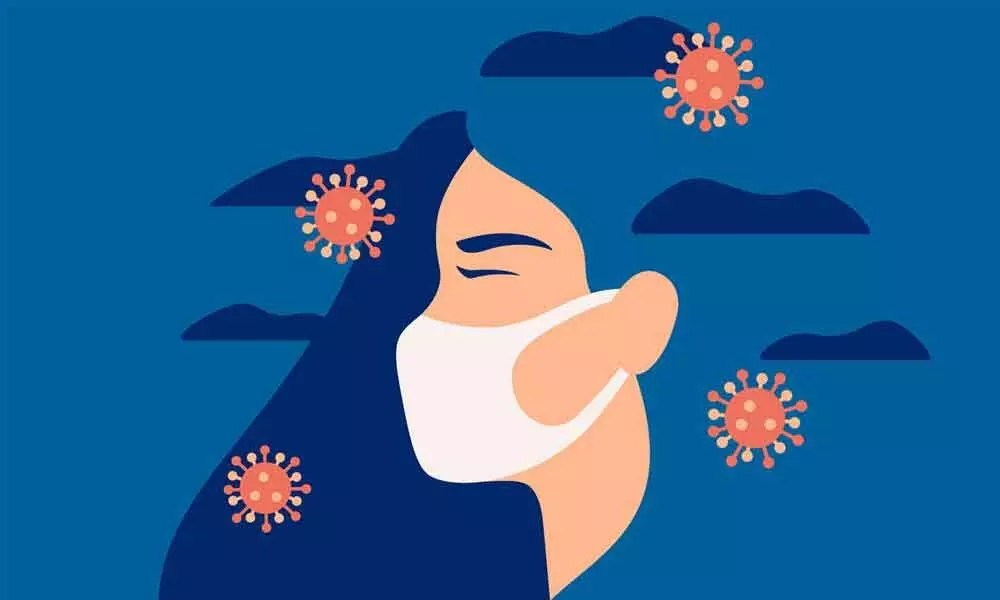Experiencing brain fog? It could be post-Covid neurological syndrome

PONOMARIOVA_MARIA/ISTOCK
The Covid-19 pandemic has affected most of the globe, resulting in unimaginable morbidity and mortality since Dec 2019.
The Covid-19 pandemic has affected most of the globe, resulting in unimaginable morbidity and mortality since Dec 2019. According to latest reports, nearly 191 million people have been affected by this infection with 4.1 million deaths all over the world. In India alone 3.14 crore people were affected with 420,765 deaths as per recent reports.
It is well known and documented that Covid-19 most commonly affects the lungs but it can also affect other parts of the human body, including the nervous system. Some experts call this condition as "post-Covid neurological syndrome". Scientists are predicting an increase in neuropsychiatric issues as more people recover from Covid-19 but experiencing lingering symptoms.
The severity of the Covid-19 illness suffered by the person has a clear effect on the subsequent neurological problems that the person develops. In one of the largest studies published recently it was found that nearly 32% of post covid infected/recovered patients develop various neuropsychiatric problems post recovery. In ICU treated patients, this percentage increases to 46% which suggests that severely infected people may have more chances of developing neuropsychiatric symptoms.
Post-Covid neurological symptoms
Usually, people develop various neuropsychiatric problems about 2-4 weeks from the first infection, which may persist for a variable period of 3-6 months or more. Older people and people with many serious medical conditions are the most likely to experience these, but many young people with covid have also reported developing these symptoms.
The common neurological problems are
♦ Fatigue
♦ Memory impairment
♦ Difficulty to concentration
♦ Sleep problems (brain fogging)
♦ Muscle pain or headache
♦ Loss of smell or taste
♦ Depression or anxiety
♦ Dizziness
♦ Worsened symptoms after physical or mental activities
The mechanism by which these symptoms persist or develop after recovery is not exactly known, but various mechanisms are likely to play a role, which includes the virus infection itself, the medications used, etc.
It is important to understand these long-lasting neurological symptoms can significantly affect the quality of life of the patient, even though they are not serious. These symptoms may persist for variable period from weeks to months. Scientists are keeping a close watch on the recovery pattern of these problems. It is advisable for all these people who have these neurological symptoms to consult the neurologist/psychiatrist to get properly evaluated and undergo any investigations if advised, which helps in management of these symptoms and help the suffers to get back to normalcy at the earliest.
Coping with lingering neuro symptoms
People who have these symptoms should slowly get back to their mental and physical work step by step. Should maintain regular sleep and eating timings. Consumption of balanced, nutritional diet help these symptoms. The management of post covid neuropsychiatry symptoms is mainly symptomatic treatment. Other modalities of non-drug treatments like meditation and yoga may play a major role in the management plan. Psychiatrist/ psychologist consultations can be of great help if the mood disorder and anxiety are major symptoms. Last but not the least the social and family support helps significantly to recover from these symptoms.
Most people affected by it may have milder symptoms which do not need hospitalisation. Also, most hospitalized patients who do not need ICU care, usually recover within 1-3 weeks. With sufficient care, attention to diet, time for mental wellness and expert advice and care from your doctor, one can cope with any linger neuro symptoms caused by the Covid infection.
Covid-19, neurological syndrome, neuro symptoms, healthcare
















